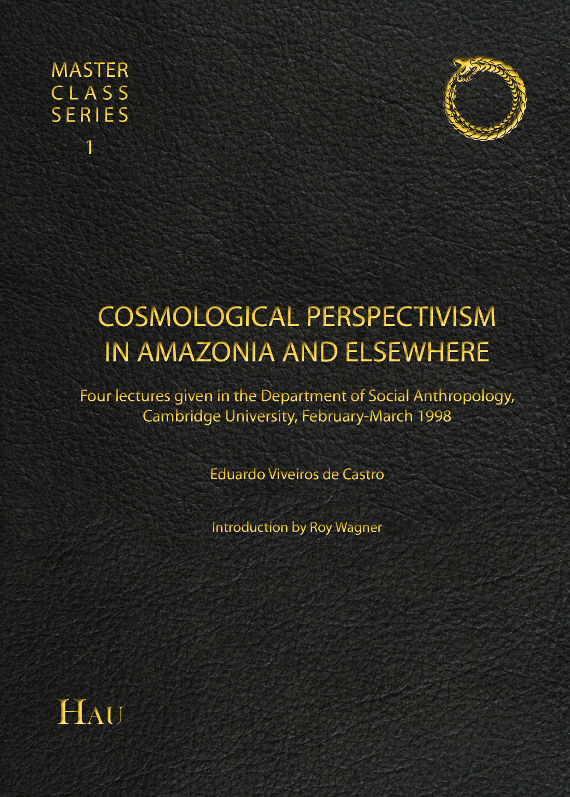Kathy Acker: Empire of the Senseless. A Novel (1988)
Filed under fiction | Tags: · appropriation, body, cyborg, gender, science fiction, sexuality

“Set in the near future, in a Paris devastated by revolution and disease, Empire of the Senseless is narrated by two terrorists and occasional lovers, Thivai, a pirate, and Abhor, part robot and part human. Together and apart, the two undertake an odyssey of carnage, a holocaust of the erotic. ‘An elegy for the world of our fathers,’ as Kathy Acker calls it, where the terrorists and the wretched of the earth are in command, marching down a road charted by Genet to a Marseillaise composed by Sade.” (from the back cover)
Publisher Grove Press, New York, 1988
ISBN 0802110797
227 pages
Commentary: Peter Wollen (London Review of Books, 1998).
PDF (18 MB, no OCR)
Comment (0)Eduardo Viveiros de Castro: Cosmological Perspectivism in Amazonia and Elsewhere (2012)
Filed under book | Tags: · animal, anthropology, body, cosmology, culture, ethnography, indigenous peoples, nature, object, ontology, perspective, perspectivism

“A tour-de-force in the anthropology of ours and other cosmologies. The first official version of the lessons which sparked one of the most influential anthropological movements of the twenty-first century. Four lectures given in the Department of Social Anthropology, Cambridge University, February-March 1998.” (from the back cover)
“The subject of these lectures is that aspect of Amerindian thought which has been called its “perspectival quality” or “perspectival relativity”: the conception, common to many peoples of the continent, according to which the world is inhabited by different sorts of subjects or persons, human and nonhuman, which apprehend reality from distinct points of view. I shall try to persuade you that this idea cannot be reduced to our current concept of relativism, which at first it seems to call to mind. In fact, it is at right angles, so to speak, to the opposition between relativism and universalism.” (from page 45)
With an Introduction by Roy Wagner
Publisher HAU, Manchester, 2012
HAU Masterclass Series, 1
Creative Commons Attribution-NonCommercial-NoDerivs 3.0 Unported
ISSN 2049-4769
168 pages
PDFs, EPUBs, HTML (from the publisher)
single PDF (6 MB)
For more from Viveiros de Castro see Monoskop wiki.
Comment (0)Stamatia Portanova: Moving without a Body: Digital Philosophy and Choreographic Thoughts (2013)
Filed under book | Tags: · abstraction, aesthetics, affect, algorithm, body, choreography, code, composition, computation, computing, dance, digital, geometry, image, infinity, mathematics, mind, movement, number, object, philosophy, sensation, virtual

“Digital technologies offer the possibility of capturing, storing, and manipulating movement, abstracting it from the body and transforming it into numerical information. In Moving without a Body, Stamatia Portanova considers what really happens when the physicality of movement is translated into a numerical code by a technological system. Drawing on the radical empiricism of Gilles Deleuze and Alfred North Whitehead, she argues that this does not amount to a technical assessment of software’s capacity to record motion but requires a philosophical rethinking of what movement itself is, or can become.
Discussing the development of different audiovisual tools and the shift from analog to digital, she focuses on some choreographic realizations of this evolution, including works by Loie Fuller and Merce Cunningham. Throughout, Portanova considers these technologies and dances as ways to think—rather than just perform or perceive—movement. She distinguishes the choreographic thought from the performance: a body performs a movement, and a mind thinks or choreographs a dance. Similarly, she sees the move from analog to digital as a shift in conception rather than simply in technical realization. Analyzing choreographic technologies for their capacity to redesign the way movement is thought, Moving without a Body offers an ambitiously conceived reflection on the ontological implications of the encounter between movement and technological systems.”
Publisher MIT Press, 2013
Technologies of Lived Abstraction series
ISBN 0262018926, 9780262018920
200 pages
Reviews: Donnarumma (Mute, 2014), Murphy (Afterimage, 2014), Thain (Digicult).
PDF (11 MB)
Comment (0)
